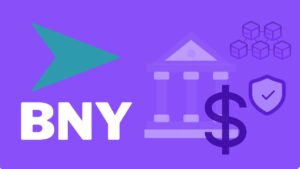The standardization of the use of blockchain technology is a sign that its acceptance is becoming more evident every day. The Australian non-governmental organization Standards Australia issued a report describing the “Roadmap for Block String Standards” to support the development block chain and Distributed Accounting Technology (DLT) and clarify standards Countries.
This NGO is in charge of the International Organization for Standardization (ISO), which is responsible for managing the Secretariat of an international technical committee for the development of block code standards, ISO / TC 307, and ISO will announce its decision in September 2017.
The first international meeting on blockchain standards for ISO / TC 307 is scheduled for April 2017 with ideas and recommendations to be presented on the basis of the report of blockchain standards already in place. Strategic ideas in the following areas will be delivered to the 33 member countries of ISO / TC 307 at the meeting and are among others the following:
- Identify several technical issues focused on governing, developing and using blockchain and DLT.
- Identify cases specifically for Australian stakeholders and examine the standards needed to determine particular cases of use of blocking chain and DLT.
- Organization of the development standards of the activities to be carried out in the development of international standards for the blocking chain ISO / TC 307.
- Examine the structures and routes that can be used in ISO / TC 307 to determine the development of international standards for the blocking chain by ISO / TC 307.
The block chain is a ledger as would be its accounting pair, which records and verifies the transactions of the chain at all times, in a secure way, and that is in the public domain. According to the Australian Standards, once the specific terminology focused on the blockchain is addressed as privacy, security and identity concerns can be collectively enforced through the development of one or a series of standards under ISO / TC 307.

Key standards for block and DLT technology should also address issues of risk in the adoption of the system as well as the establishment of interoperability between blockchain systems. But to develop such standards, vocabulary terminology and consistency are perhaps the most important issue requiring immediate attention for the further development of a reference architecture standard for the block chain under ISO / TC 307.
A blockchain terminology standard would provide the clarity needed to support the development of other blockchain standards.
The report also includes the results of a survey that has guided the road map, involving 100 Australian government, industry, academic / research and consumer organizations. For example, most respondents indicated that they would like to see the government use the blockchain for registration of title deeds, personal identification and health records management.
To ensure the widespread adoption of blockchain technology there must be standardization. Over the next few years, Standards Australia will work with international and Australian stakeholders to make this happen by collaborating and leveraging the experiences of the block space pioneers such as the Commonwealth Bank of Australia, IBM and Microsoft. An important step certainly.










